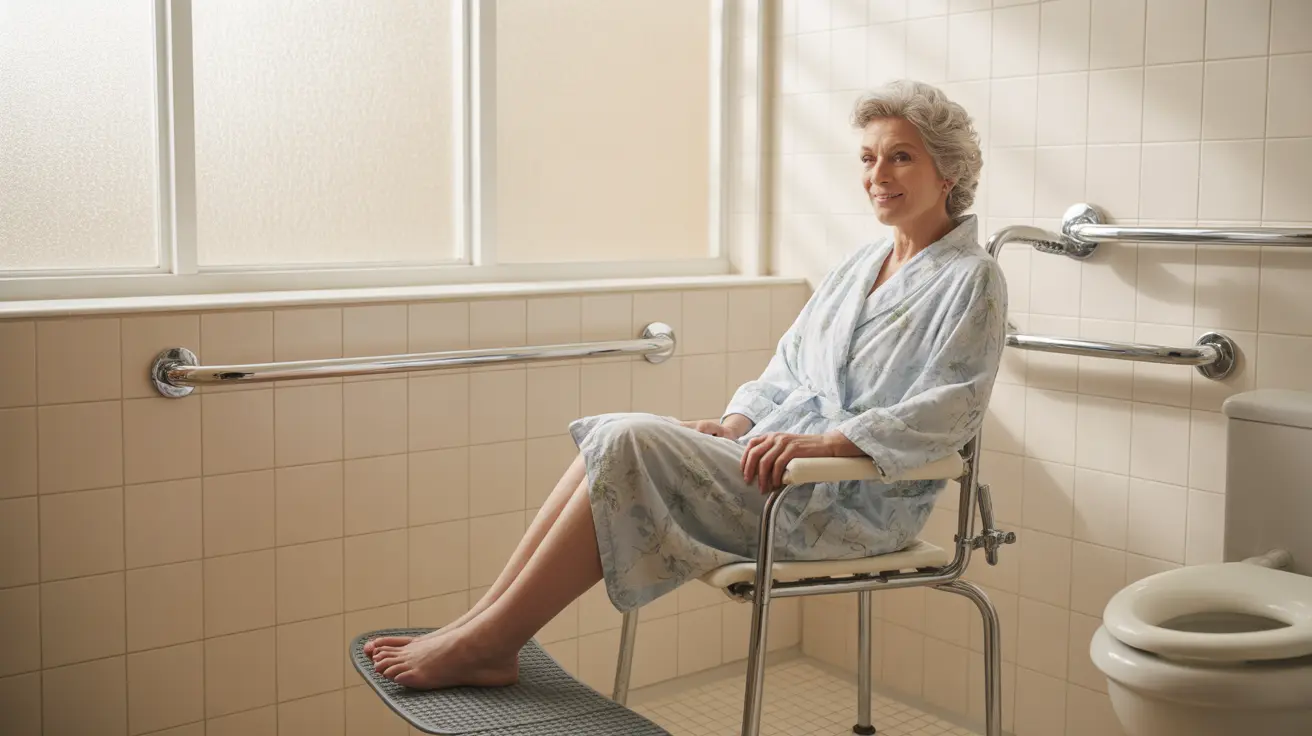Making your bathroom safer and more accessible is crucial for maintaining independence and preventing falls, especially as mobility needs change. Understanding how Medicare coverage applies to bathroom modifications and safety equipment can help you make informed decisions about necessary home improvements.
While Medicare's coverage for bathroom modifications is limited, there are several options and resources available to help make your bathroom more accessible. Let's explore what Medicare does and doesn't cover, and what alternatives exist for funding these important home modifications.
Understanding Medicare's Coverage for Bathroom Equipment
Original Medicare (Parts A and B) typically does not cover most bathroom remodeling costs or permanent fixtures. However, there are specific circumstances where Medicare may help with certain bathroom safety equipment:
- Commode chairs
- Shower chairs
- Transfer benches
- Raised toilet seats (in specific circumstances)
These items typically fall under Medicare Part B's durable medical equipment (DME) category, but strict qualification requirements apply.
Medicare Coverage Requirements for Bathroom Equipment
To qualify for Medicare coverage of bathroom safety equipment, you must meet several criteria:
- Have a doctor's prescription stating medical necessity
- Obtain equipment from Medicare-approved suppliers
- Meet specific health condition requirements
- Use the equipment primarily in your home
Your healthcare provider must document that the equipment is medically necessary for your specific condition and daily functioning.
Medicare Advantage Plans and Bathroom Modifications
Medicare Advantage (Part C) plans often provide more extensive coverage options for bathroom safety modifications than Original Medicare. Some plans may offer:
- Partial coverage for grab bar installation
- Allowances for bathroom safety modifications
- Coverage for some types of walk-in tubs or shower modifications
- Additional home safety assessment services
Coverage varies significantly between different Medicare Advantage plans, so it's essential to check your specific plan's benefits.
Alternative Funding Sources for Bathroom Modifications
When Medicare coverage isn't available, several other programs and resources can help fund bathroom modifications:
- Medicaid Home and Community Based Services (HCBS) waivers
- Area Agencies on Aging grants
- U.S. Department of Agriculture Rural Repair and Rehabilitation grants
- Veterans Affairs grants for service-connected disabilities
- State-specific home modification programs
Frequently Asked Questions
Does Medicare cover the cost of bathroom remodeling or home modifications?
Original Medicare generally does not cover bathroom remodeling or permanent home modifications. However, Medicare Part B may cover certain portable safety equipment when prescribed by a doctor and deemed medically necessary.
What bathroom safety equipment does Medicare pay for, and what requires a doctor's prescription?
Medicare may cover specific bathroom safety equipment like commode chairs, shower chairs, and transfer benches when prescribed by a doctor. All covered equipment requires a prescription and must be deemed medically necessary for your condition.
Can Medicare Advantage plans help with expenses for grab bars, walk-in tubs, or other accessibility upgrades?
Yes, some Medicare Advantage plans offer coverage for bathroom safety modifications, including grab bar installation and other accessibility upgrades. Coverage varies by plan, so check your specific plan's benefits for details.
How do I qualify for Medicare coverage of durable medical equipment for bathroom use?
To qualify, you need a doctor's prescription stating medical necessity, must use Medicare-approved suppliers, and the equipment must be primarily for use in your home. Your specific health condition must justify the need for the equipment.
What other programs or resources can help pay for bathroom modifications if Medicare does not cover them?
Several alternatives exist, including Medicaid HCBS waivers, Area Agencies on Aging grants, USDA Rural Repair grants, VA grants for veterans, and state-specific programs. Local organizations and non-profits may also offer assistance.




